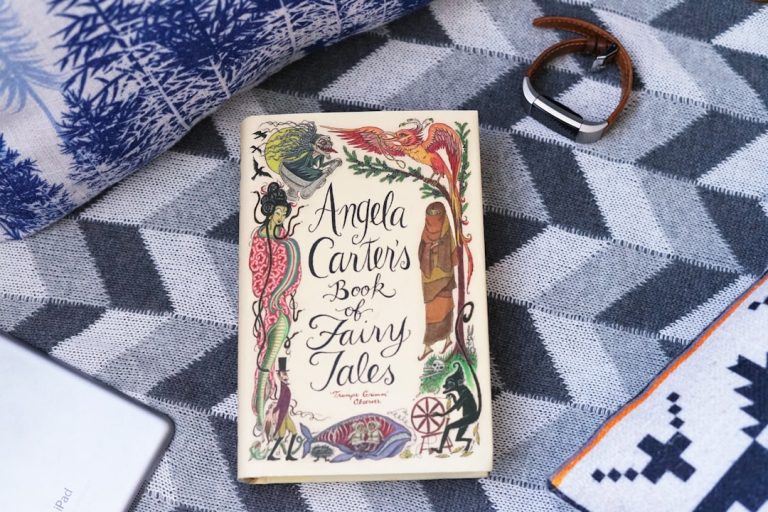
Short stories serve as a powerful tool for English language learners, offering a unique blend of brevity and depth that can enhance various aspects of language acquisition. One of the primary benefits of short stories is their ability to engage learners with compelling narratives that capture attention and stimulate imagination. Unlike longer texts, short stories can be read in a single sitting, making them accessible and less daunting for learners who may feel overwhelmed by lengthy novels.
This immediacy allows for a more focused reading experience, where learners can immerse themselves in the plot and characters without the distraction of a sprawling narrative. Moreover, short stories often encapsulate universal themes and emotions, making them relatable to a diverse audience. This relatability can foster a deeper connection to the language, as learners find themselves invested in the characters’ journeys and conflicts.
The emotional engagement that short stories provide can motivate learners to explore language in a more meaningful way, encouraging them to express their thoughts and feelings in English. Additionally, the concise nature of short stories allows for the exploration of various literary devices, such as symbolism, irony, and foreshadowing, which can enrich learners’ understanding of the language and its nuances.
Key Takeaways
- Short stories provide a variety of benefits for English learning, including improving vocabulary, grammar, reading comprehension, listening, speaking, and cultural understanding.
- Choose short stories that are appropriate for your language level to ensure that they are challenging but not overwhelming.
- Techniques for improving vocabulary and grammar through short stories include making vocabulary lists, identifying grammar patterns, and practicing using new words and structures in context.
- Practice reading comprehension by summarizing the story, answering comprehension questions, and discussing the story with others.
- Enhance listening and speaking skills by listening to audio recordings of short stories, practicing pronunciation, and discussing the story with others.
How to Choose the Right Short Stories for Your Language Level
Selecting appropriate short stories is crucial for maximizing their effectiveness in language learning. For beginners, it is advisable to choose stories that feature simple vocabulary and straightforward sentence structures. Classic children’s tales or fables often serve as excellent starting points, as they typically employ clear language and convey moral lessons that are easy to grasp.
For instance, Aesop’s fables not only present simple narratives but also introduce learners to fundamental concepts in storytelling, such as character development and conflict resolution. As learners progress to intermediate levels, they can begin to tackle stories that incorporate more complex themes and varied vocabulary. At this stage, it is beneficial to select works by contemporary authors who write in accessible language while still challenging learners with new expressions and idiomatic phrases.
Stories from authors like Ray Bradbury or Alice Munro can provide rich content that encourages learners to expand their linguistic repertoire while still being manageable in length. It is also helpful to consider the interests of the learner; selecting stories that align with their personal preferences can enhance motivation and engagement.
Techniques for Improving Vocabulary and Grammar Through Short Stories

Short stories offer a fertile ground for vocabulary enhancement and grammar practice. One effective technique is to encourage learners to create a vocabulary journal while reading. As they encounter unfamiliar words or phrases, they can jot them down along with their definitions and example sentences.
This active engagement with new vocabulary not only aids retention but also provides context for how words are used in different situations. For instance, if a learner comes across the word “melancholy” in a story, they can explore its meaning and usage through various contexts, thereby deepening their understanding. In addition to vocabulary building, short stories can serve as a practical resource for grammar instruction.
Teachers can select specific passages that exemplify particular grammatical structures, such as verb tenses or conditional sentences. By analyzing these passages, learners can see grammar in action, which often leads to better comprehension than traditional grammar exercises. For example, a story that employs past tense narration can be dissected to highlight how different verbs are conjugated, allowing learners to practice these forms in context.
This method not only reinforces grammatical concepts but also demonstrates their relevance in real-world communication.
Using Short Stories to Practice Reading Comprehension
| Short Story Title | Reading Level | Number of Pages | Main Theme |
|---|---|---|---|
| The Gift of the Magi | Intermediate | 5 | Sacrifice and Love |
| The Lottery | Advanced | 8 | Tradition and Conformity |
| The Tell-Tale Heart | Advanced | 6 | Guilt and Madness |
Reading comprehension is a critical skill for language learners, and short stories provide an excellent medium for developing this ability.
These questions can range from basic recall of plot details to more complex inquiries about character motivations or thematic elements.
For instance, after reading a story about friendship, learners might be asked how the characters’ relationships evolve throughout the narrative or what lessons they learn by the end. Another approach is to encourage learners to summarize the story after reading it. This exercise not only reinforces comprehension but also helps learners practice their speaking or writing skills by articulating their understanding of the text.
Summarizing requires them to distill the main ideas and supporting details into a coherent narrative, which can be particularly beneficial for developing concise expression in English. Additionally, discussing the story with peers or instructors can further enhance comprehension as learners articulate their thoughts and engage in dialogue about different interpretations of the text.
Enhancing Listening and Speaking Skills with Short Stories
Short stories can also be utilized effectively to bolster listening and speaking skills among English learners. Audiobooks or recorded readings of short stories provide an excellent opportunity for learners to develop their listening comprehension. By listening to native speakers narrate the stories, learners can familiarize themselves with pronunciation, intonation, and rhythm of the language.
This exposure is invaluable for building auditory skills that are essential for effective communication. To complement listening activities, role-playing exercises based on short stories can significantly enhance speaking skills. Learners can be assigned different characters from a story and asked to act out scenes or dialogues.
This interactive approach not only makes learning enjoyable but also encourages learners to practice speaking in a supportive environment. For example, if a story involves a conversation between two friends resolving a conflict, learners can reenact this scene, allowing them to experiment with dialogue while gaining confidence in their spoken English.
Incorporating Short Stories into Writing Exercises

Writing exercises based on short stories can serve as an effective means of reinforcing language skills while fostering creativity. One approach is to have learners write alternative endings or sequels to the stories they read. This exercise encourages them to think critically about character development and plot structure while practicing their writing skills.
For instance, after reading a story where the protagonist faces a moral dilemma, learners could be tasked with imagining how different choices might lead to various outcomes. Another valuable writing exercise involves character analysis or thematic exploration based on the short story’s content. Learners can be prompted to write essays or reflections on specific characters’ motivations or the overarching themes presented in the narrative.
This not only deepens their understanding of the text but also allows them to practice organizing their thoughts coherently in written form. By articulating their insights about the story’s elements, learners enhance both their analytical skills and their command of written English.
Exploring Cultural and Historical Contexts Through Short Stories
Short stories often reflect the cultural and historical contexts in which they were written, providing an enriching backdrop for language learning. Engaging with these contexts allows learners to gain insights into different societies and perspectives while enhancing their understanding of the language itself. For example, reading works by authors from diverse backgrounds—such as Chimamanda Ngozi Adichie or Gabriel García Márquez—can expose learners to cultural nuances and social issues relevant to those regions.
To deepen this exploration, educators can incorporate discussions about the historical events or cultural practices referenced in the stories. This could involve researching the author’s background or examining the societal norms depicted in the narrative. By connecting language learning with cultural literacy, learners develop a more holistic understanding of English as it exists within various contexts around the world.
This approach not only enriches their language skills but also fosters empathy and appreciation for diverse cultures.
Tips for Creating a Personalized Short Story Learning Plan
Creating a personalized learning plan centered around short stories requires careful consideration of individual goals and preferences. First and foremost, learners should assess their current language proficiency level and identify specific areas they wish to improve—be it vocabulary acquisition, reading comprehension, or writing skills. Once these goals are established, selecting short stories that align with these objectives becomes essential.
In addition to choosing appropriate texts, incorporating a variety of activities related to each story can enhance engagement and retention. For instance, after reading a story, learners might engage in discussions, complete writing exercises, or even create visual representations of key themes or characters. Setting aside dedicated time each week for short story exploration ensures consistent practice while allowing flexibility for personal interests.
Furthermore, utilizing technology can augment this personalized learning plan; there are numerous online platforms offering access to short stories along with interactive exercises tailored to different proficiency levels. By leveraging these resources alongside traditional texts, learners can create a dynamic learning experience that keeps them motivated and invested in their language journey. In summary, short stories are an invaluable resource for English language learners at all levels.
They provide opportunities for vocabulary enhancement, grammar practice, reading comprehension development, and cultural exploration while fostering creativity through writing exercises. By thoughtfully selecting texts and incorporating diverse activities into their learning plans, students can harness the power of short stories to achieve their language learning goals effectively.
One related article that complements the benefits of using short stories to learn English is the one on song lyrics. Just like short stories, song lyrics can also be a valuable tool for language learners to improve their English skills. By listening to songs and reading the lyrics, learners can enhance their vocabulary, pronunciation, and comprehension. Additionally, songs often convey emotions and cultural nuances that can deepen one’s understanding of the language. Combining the use of short stories and song lyrics can provide a well-rounded approach to learning English.
FAQs
What are the benefits of using short stories to learn English?
Short stories can help improve English language skills such as reading, listening, speaking, and writing. They also provide cultural insights and can be a fun and engaging way to learn.
How do short stories improve English language skills?
Short stories provide exposure to natural language use, vocabulary, and grammar in context. They also help improve comprehension, fluency, and pronunciation through reading and listening practice.
What cultural insights can be gained from using short stories to learn English?
Short stories often reflect the culture, traditions, and values of the English-speaking world, providing learners with a deeper understanding of the language in its cultural context.
Why are short stories a fun and engaging way to learn English?
Short stories are often more accessible and less intimidating than longer texts, making them more enjoyable for learners. They also offer a variety of themes and genres to cater to different interests.
How can short stories be used to enhance English language learning?
Short stories can be used for reading comprehension exercises, vocabulary building, discussion and debate, creative writing prompts, and even as a basis for language learning games and activities.



